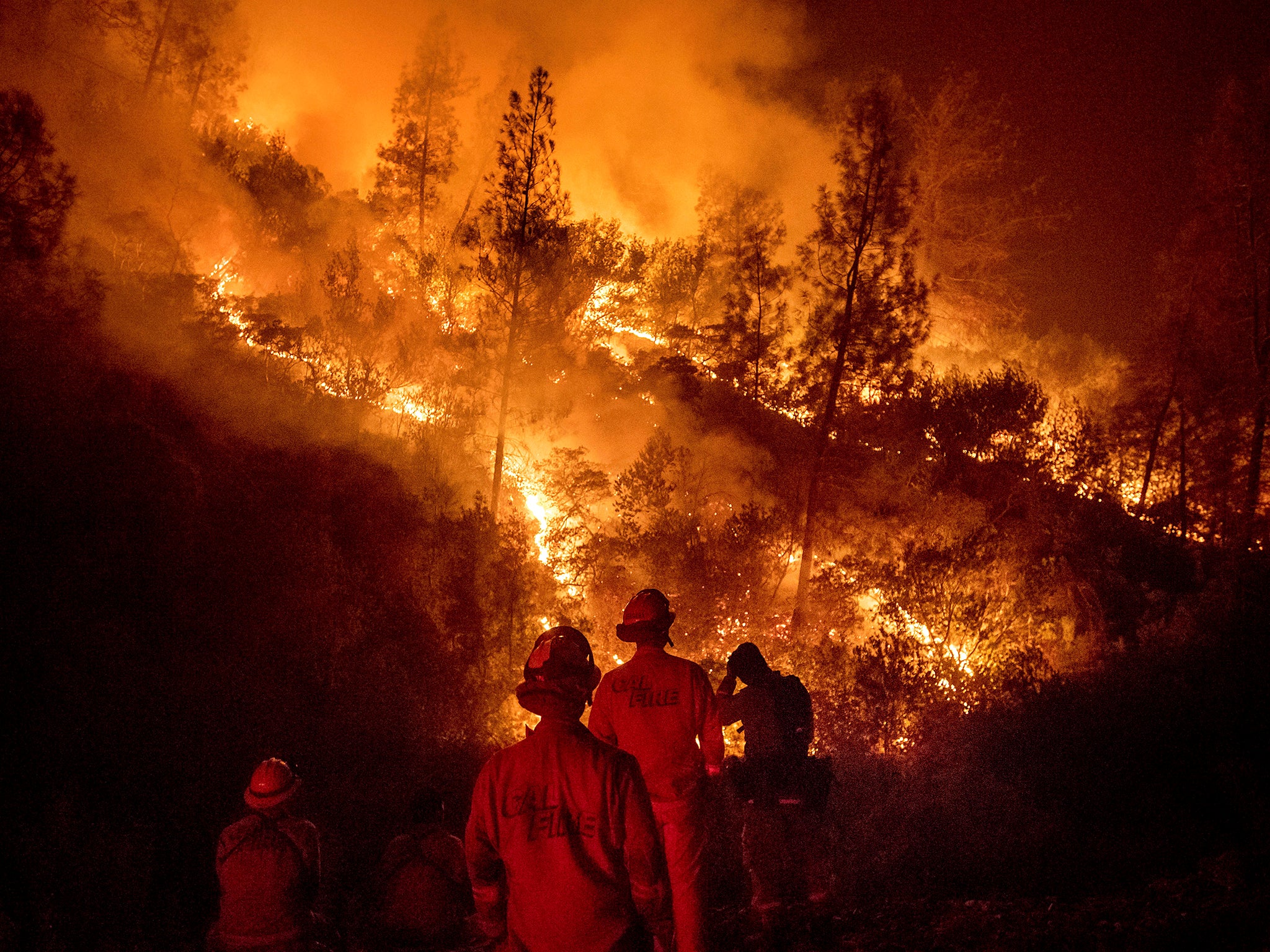Countries must raise emissions targets fivefold to stop disastrous global warming, UN warns
‘If the IPCC report represented a global fire alarm, this report is the arson investigation’

Countries must slash emissions by five times their planned amount in the next 11 years if they are to avert disastrous global warming, the UN has warned.
Vanishing islands, widespread species extinctions and extreme weather have all been predicted under even the most optimistic climate predictions.
However, experts think the worst effects of climate change can be averted if the world breaks its dependence on carbon-emitting fossil fuels.
CO2 pollution increased in 2017 after a promising three-year decline, dashing hopes that the world had reached peak emissions. Initial reports suggest in 2018 this worrying trend will continue.
Despite efforts to eradicate fossil fuels in many countries, plans to slash emissions are still way off what is required to keep warming under 2C above pre-industrial levels.
This is even more pronounced if the more ambitious target of 1.5C recommended by many in the global climate science community is to be achieved.
In a new report, UN environment specialists predict that if this “emissions gap” is not closed by 2030, the world will never meet these targets, which are set out by the Paris climate agreement.
This echoes the scientific conclusions of the UN’s Intergovernmental Panel on Climate Change (IPCC) in October, which found emissions needed to halve in 12 years to avoid climate catastrophe.
10 photographs to show to anyone who doesn't believe in climate change
Show all 10The scientists behind that report predicted a world of melting Arctic sea ice, climate refugees and dying coral reefs as it soars past the 1.5C threshold.
“If the IPCC report represented a global fire alarm, this report is the arson investigation,” said UN environment deputy executive director Joyce Msuya.
“The science is clear: for all the ambitious climate action we’ve seen, governments need to move faster and with greater urgency. We’re feeding this fire while the means to extinguish it are within reach.”
Nations must set more ambitious commitments and triple their emissions cuts by 2030 to meet a 2C target, and increase cuts by five times to meet the 1.5C target.
If current trends continue, the Earth will likely heat up by 3.2C by the end of the century.
The report comes at a crucial time for climate change preparations, arriving shortly after the IPCC’s report and the week before important climate discussions begin at COP24 in Poland.
While governments have so far failed in stepping up to the challenge, climate experts said there was hope among the “doom and gloom” predictions.
“It’s clear that governments can make global carbon emissions peak and decline soon if they simply do more of what’s proven to work, such as cutting energy waste and switching from coal to clean energy,” said Richard Black, director of the Energy and Climate Intelligence Unit
Dr Jian Liu, UN Environment’s chief scientist, said governments must act by subsidising renewable energy sources such as wind and solar, and taxing fossil fuels heavily instead of supporting them.
“If all fossil fuel subsidies were phased out, global carbon emissions could be reduced by up to 10 percent by 2030,” he said.
Despite global progress in renewable energy, much of the world still remains locked into high-polluting fuels like coal and oil, and opposition to climate science from major nations like the US and Brazil looks set to jeopardise the fight against global warming.
While the UK has cut emissions by more than 40 per cent since 1990, green groups say this progress is being hampered as the government stalls on switching to electric vehicles and supports fracking.
“This is the biggest threat humanity has faced and the urgency of action required is shocking. What are governments waiting for?” said Greenpeace International executive director Jennifer Morgan.
With cities around the world banning non-electric cars, regional governments phasing out coal power and banks turning their back on fossil fuel investments, Ms Morgan said hope may now lie with these non-state actors.
Extreme heatwaves this summer were widely viewed as a glimpse of future life in a warmer world, and an approaching El Niño event could see 2019 take the crown for hottest year on record.
Representatives from governments, NGOs and businesses gather in the Polish city of Katowice for the UN’s COP24 summit next week – an event seen by many as a potential turning point in efforts to avert climate change.
Subscribe to Independent Premium to bookmark this article
Want to bookmark your favourite articles and stories to read or reference later? Start your Independent Premium subscription today.

Join our commenting forum
Join thought-provoking conversations, follow other Independent readers and see their replies